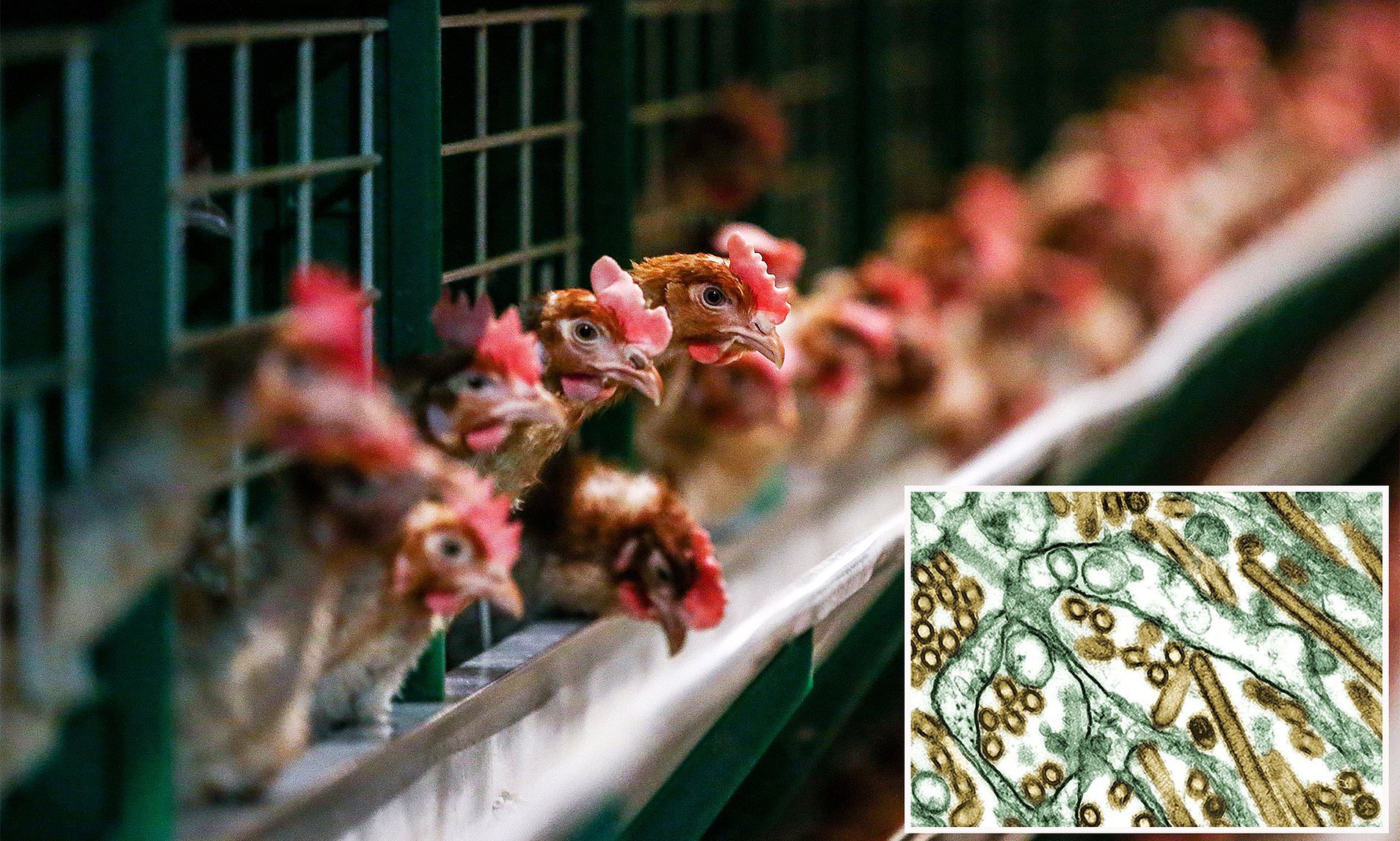
BIRD FLU DETECTED AT EIGHTH FARM IN VICTORIA
- Seven properties are already infected
- The farm also has the H7N3 strain of the virus
- READ MORE: Bird flu detected at second Sydney farm
The bird flu outbreak has spread to an eighth farm in Victoria after the contagious disease was detected at another property.
Tests conducted on Tuesday confirmed traces of the highly contagious H7N3 strain of avian influenza at the egg farm in Meredith, about 40km north-west of Geelong.
The property had already been under quarantine after more than half-a-dozen farms across the Golden Plains region, in the state's west, were infected with the virus.
Agriculture Victoria said officials are working with the affected properties to contain the spread of the disease.
'A comprehensive surveillance program has been in place in the restricted and control areas in order to detect the presence of such viruses,' they said.
'All properties have been placed in quarantine and all poultry will be safely and humanely disposed of. The sites will be cleaned and cleared of the infection.'
Avian influenza is a highly contagious viral infection which can cause severe symptoms and sudden death in domestic poultry, wiping out entire populations.
Health authorities have scrambled to contain the virus after the first case was detected on a farm in Meredith on May 22.
Restricted zones and control orders are in place near Terang, Meredith and Lethbridge, to stop the movement of eggs and livestock.
The property in Terang was infected by the H7N9 strain.
The outbreak has forced more than one million birds, including chickens and ducks, across the seven other farms to be euthanised.
The NSW Department of Primary Industries (DPI) confirmed that a case of bird flu was detected on a farm in the Hawkesbury region, in Sydney's north-west, last Wednesday.
The strain of bird flu found is H7N8 and differs from strains H7N3 and H7N9 spreading in Victoria and the H5N1 strain causing concerns around the globe.
The H7N8 strain was detected at another property just 1.5km away three days later.
Agriculture Victoria said eggs and duck meat products are still safe to buy from supermarkets.
While it is possible for humans to contract avian influenza viruses when in direct contact with infected animals, Agriculture Victoria said the current risk to the public remains extremely low.
Read more 2024-06-26T07:38:56Z dg43tfdfdgfd